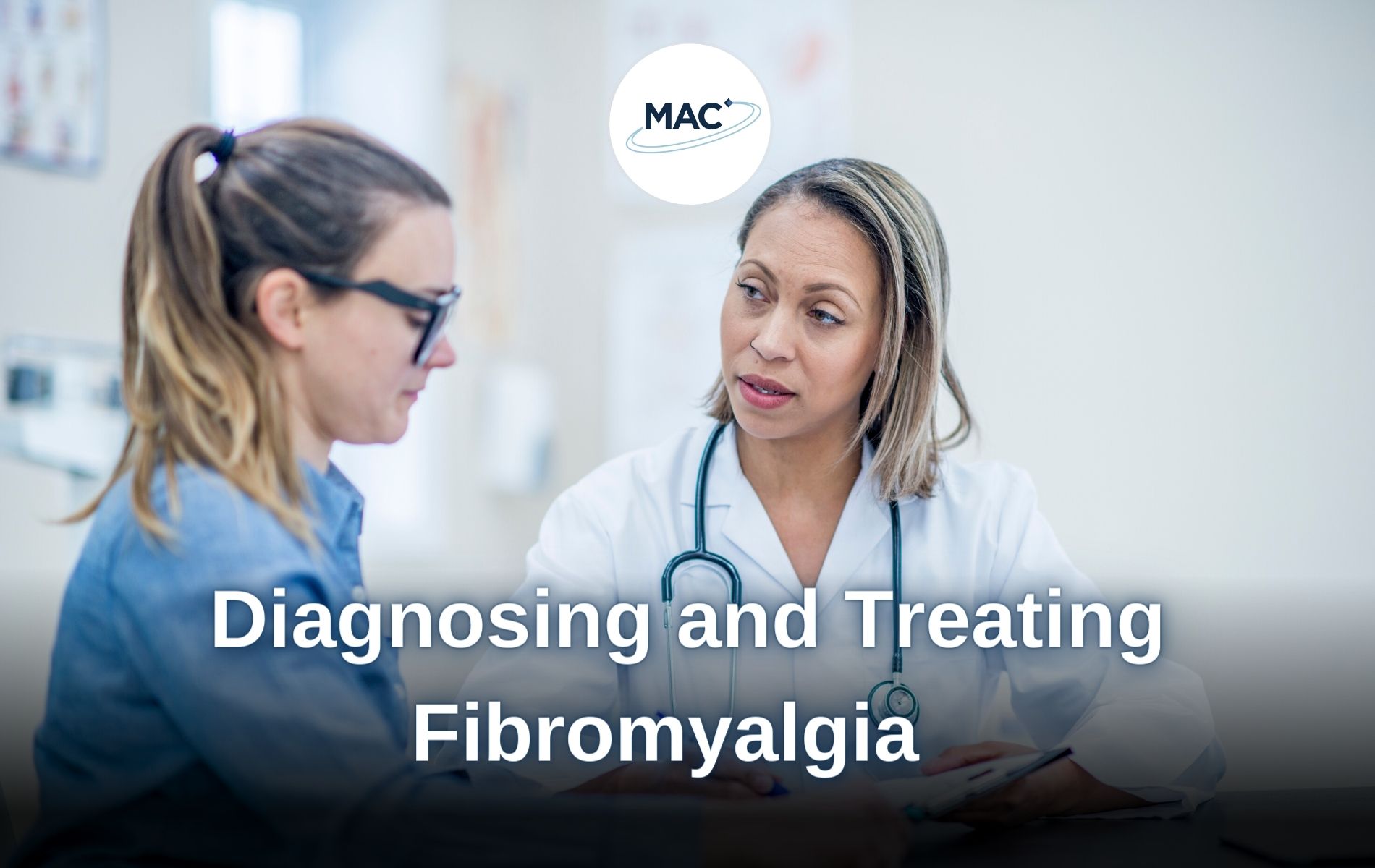Imagine living life with persistent pain that spreads throughout your body and feeling constantly drained.
Fibromyalgia is a common condition that affects around 2.5 million people in the UK. It is a type of persistent or recurring pain, specifically known as ‘chronic primary pain.’ The National Institute of Clinical Excellence (NICE), classify chronic primary pain as pain lasting for more than 3 months and with no clearly identifiable cause.
Fibromyalgia isn’t the result of physical damage to the body but is thought to be caused by the way the nervous system processes sensory signals, increasing the sensitivity of the nerve endings. This means pain can be felt from a small amount of pressure or minor knock.
The pain, often burning in nature, migrates around the body and is associated with other multiple symptoms such as fatigue, sleep disturbance and cognitive changes. Other problems include stomach pain, bowel problems and headaches.
Dr Sharon Viner, a research physician at MAC Clinical Research and a practicing GP, explains that fibromyalgia is a condition that can be very difficult to diagnose. She said: “This is because there is no specific test that confirms the diagnosis: the symptoms can mimic those associated with other conditions and alternate problems may coexist. Usually, tests are performed to rule out other conditions, but this can often lead to a delay in making the diagnosis.
“As clinicians we must suspect it when a patient reports widespread pain, fatigue, poor concentration or hypersensitivity and when pain treatments have proved ineffective.”
Once the diagnosis is made, managing the symptoms can be challenging, as pain medication is often ineffective and the medication itself can cause undesirable side effects.
In 2021, NICE published a guideline for chronic primary pain. The recommendations made in this guideline were radical. Primary care physicians were now being advised, based on the latest evidence to avoid pain killers for chronic primary pain. Instead, GPs should now be offering non-pharmacological treatments such as exercise programmes, acupuncture, and psychological therapies. If medications are to be considered, then these should be anti-depressant drugs which have shown to improve the quality of life of people living with fibromyalgia.
Dr Viner, comments: “There has been a real shift in our clinical practice in how we manage chronic pain. For many years, GPs have treated conditions such as fibromyalgia, primarily with analgesics but evidence showing analgesics provide patients with long term benefit is lacking. Furthermore, many of these medications can cause side effects that aggravate symptoms of the condition itself. Some of the medications used cause addiction, and a proportion of patients can go on and develop opioid-induced hyperalgesia. This is when patients on long-term opioid drugs become more sensitive to pain. In short, the benefits do not outweigh the risks”.
She goes on to say: “The main barrier to the non-pharmacological approach, is the lack of service provision in some areas of the country. GPs are heavily reliant on the multidisciplinary services available to them in the community to manage their patients. A lack of service provision in a particular region could affect a patient’s level of care.”
Unfortunately, there is no cure for fibromyalgia and there is a real need to develop new treatments for the symptoms of the condition. The hope is that clinical trials may provide a much-needed alternative treatment option for people suffering with fibromyalgia.
Research into new treatments could improve the quality of life for those living with fibromyalgia, but researchers at MAC Clinical Research need your help in testing a potential new medication for the condition.
MAC are looking for male and female volunteers who:
- are aged 18 to 70
- have been diagnosed with fibromyalgia for at least 6 months
*other eligibility criteria will apply.
If eligible, participants may be able to continue the treatment they currently take for fibromyalgia during the trial period and will receive up to £3,050 for their time and commitment to the research.
Transport to MAC clinics or travel expenses are also provided. The study will run at our clinics in Greater Manchester, Lancashire (Blackpool), Merseyside, South Staffordshire (Cannock), South Yorkshire, West Yorkshire (Leeds) and Teesside.
To find out more about MAC Clinical Research’s fibromyalgia clinical trial and how you can help researchers trial potential new medications not yet available, visit our Fibromyalgia research webpage.




